Finding the right frame for a cherished photo can be frustrating. You’ve got that perfect family portrait or vacation shot, but standard frame sizes seem to follow their own rules.
Many people find themselves cutting photos or leaving awkward white spaces around images because they bought frames without knowing the common dimensions.
A well-framed photo not only looks better but also protects your memories for years to come. This blog will show you how to match your photos with the correct frame sizes without any guesswork.
You’ll learn about standard frame dimensions, how to measure your photos correctly, and simple tips for selecting frames that complement your images perfectly. We’ll make framing your photos easy and stress-free.
Why Does Choosing the Right Frame Size Matter?
Selecting the correct frame size for your photos does more than just make them fit nicely on your wall. It affects how your images look, how well they’re protected, and even how they connect with other items in your space.
The right frame creates a balanced look that draws attention to your photo for all the right reasons. The following are a few reasons for selecting standard frame sizes.
- Protects your photos – Proper sizing prevents damage from bending, creasing, or exposure to air and moisture that can fade your images over time.
- Creates visual harmony – A well-proportioned frame balances the photo and complements rather than competes with your image.
- Saves money – Buying the right size the first time means no costly replacements or custom framing fees.
- Makes hanging easier – Standard sizes work better with typical wall spaces and existing hardware.
- Increases photo display – The right frame brings out colors and details in your images that might otherwise go unnoticed.
- Preserves aspect ratios – Maintains the original proportions of your photo without awkward cropping or blank spaces.
The Best Standard Frame Sizes for Your Picture Needs
Standard frame sizes make shopping easier and more cost-effective compared to custom options.
These common dimensions are widely available in stores and online, giving you plenty of style choices without the wait or expense of custom framing. Here are the most useful standard frame sizes for your photos.
The following are standard frame sizes for your pictures.
1. 4×6 Inch Frames
This compact size works perfectly for standard printed photos from most labs and home printers. The 4×6 frame is ideal for desktops, nightstands, or grouped in collections on walls. These frames offer the most options while taking up minimal space.
- Photo Resolution: Best for 1200×1800 pixel images (300 DPI)
- Matting for Intensity: White or cream mat with 1/2-inch border highlights facial details
- Protective Features: Often comes with basic glass or acrylic front protection
- Frame Material: Available in wood, metal, plastic, and composite options
2. 5×5 Inch Frames
The perfect square format for social media photos, close-up portraits, and artistic compositions. The 5×5 frame offers a modern, balanced look that fits easily on shelves, desks, or in grid arrangements on walls. Its symmetry creates visual calm and focus.
- Photo Resolution: Best for 1500×1500 pixel images (300 DPI)
- Matting for Intensity: Thin 1/2 to 3/4-inch mats maintain the compact, clean look
- Protective Features: Basic glass or acrylic protection, with premium options available
- Frame Material: Contemporary metals, colorful plastics, and minimalist wood styles
3. 5×7 Inch Frames
Slightly larger than 4×6, these frames create more impact while remaining small enough for tabletops. The 5×7 size offers a nice balance between detail and presence, making photos more noticeable without taking too much space.
- Photo Resolution: Best for 1500×2100 pixel images (300 DPI)
- Matting for Intensity: A 1-inch neutral mat brings focus to mid-sized group photos
- Protective Features: May include UV-protective glass options
- Frame Material: Commonly found in solid wood, brushed metal, and resin
4. 8×10 Inch Frames
A classic medium size that works well for important photos you want to highlight. The 8×10 frame stands out on tables and makes an impact on walls without being too large for most spaces.
- Photo Resolution: Best for 2400×3000 pixel images (300 DPI)
- Matting for Intensity: A 1.5 to 2-inch mat creates a dramatic presentation for landscapes
- Protective Features: Often available with non-glare and UV-resistant glass
- Frame Material: Quality wood, decorative metal, and composite materials
5. 11×14 Inch Frames
This larger size makes a statement and works well for significant photos you want to showcase. The 11×14 frame draws attention as a focal point in room design and lets viewers see more detail.
- Photo Resolution: Best for 3300×4200 pixel images (300 DPI)
- Matting for Intensity: A 2 to 3-inch mat allows smaller photos to gain presence
- Protective Features: Premium options include museum glass and acrylic
- Frame Material: Solid hardwoods, designer metals, and high-end composites
6. 16×20 Inch Frames
This large format creates a major visual impact and serves as a central focus in any room. The 16×20 frame transforms ordinary photos into statement pieces that draw the eye immediately. This size works beautifully for family portraits, landscapes, or any image you want to spotlight.
- Photo Resolution: Best for 4800×6000 pixel images (300 DPI)
- Matting for Intensity: 3 to 4-inch mats create a gallery-quality presentation
- Protective Features: Often includes anti-glare, UV-filtering, and fingerprint-resistant glass
- Frame Material: Premium hardwoods, architectural metals, and high-end composites
Beyond the Basics: Uncommon but Useful Frame Sizes
Not all photos fit neatly into the most common frame sizes. Sometimes you’ll need something a bit different to showcase special images or fit specific spaces. These less common but highly useful frame sizes can solve tricky display problems and give your photos a unique presentation.
The following is a well-structured table summarizing the information for each frame size:
| Frame Size | Best For | Photo Resolution (300 DPI) | Matting for Intensity | Protective Features | Frame Material |
|---|---|---|---|---|---|
| 6×8 Inch | Group shots, detailed landscapes | 1800×2400 pixels | 1-inch mat for balance | Basic glass, some non-glare options | Limited wood and metal finishes |
| 8×8 Inch | Instagram prints, artistic compositions | 2400×2400 pixels | 1 to 1.5-inch mat for enhancement | Standard glass, premium upgrades | Contemporary metals, colorful woods |
| 9×12 Inch | Larger portraits and landscapes | 2700×3600 pixels | 1.5 to 2-inch gallery-style mat | UV-protection, reduced glare | Quality woods, brushed metals, and composites |
| 10×13 Inch | European standard and formal portraits | 3000×3900 pixels | 2-inch mat for required spacing | Mid-range glass with some UV filtering | Traditional woods, classic metals |
| 12×12 Inch | Album art, decorative, or social media prints | 3600×3600 pixels | 2 to 2.5-inch mat for drama | Mid to premium glass with UV/glare reduction | Thick woods, industrial metals, designer styles |
Using Mats: How Matting Affects Frame Size Selection
Mat boards aren’t just fancy borders around your photos, they play a crucial role in how your framed image looks and feels. The mat creates space between your photo and the glass, which is important for both looks and protection.
When choosing a standard frame, the mat size becomes a key factor that can transform your entire display.
- Creates visual breathing room – A mat gives your photo space to stand out, making even small images more noticeable and important.
- Adds protection – Keeps your photo from touching the glass, which helps stop moisture damage and sticking.
- Changes proportions – A wider mat can turn a small photo into a larger wall piece without changing the image size.
- Affects color perception – The color and width of your mat can make photo colors pop or calm them down.
- Works with odd-sized photos – Helps fit non-standard photo sizes into common frame dimensions without cutting your image.
- Adds depth – Creates a three-dimensional look that flat framing lacks, giving your display more visual interest.
- Offers flexibility – Allows you to use standard frames even when your photos don’t match typical dimensions.
Wrapping It Up
Selecting the perfect frame isn’t just about making your photos fit, it’s about making them shine. The right size and style can transform an ordinary image into a focal point that catches every eye.
Remember that standard sizes offer affordable options for most photos, while uncommon dimensions solve specific display challenges. Consider both the image and where you’ll place it before making your choice.
Don’t forget that mats add both protection and visual appeal, creating space that helps your photos stand out. They’re worth the small extra cost for the significant impact they make.
Next time you print a special photo, skip the guesswork. Measure your image, consider its placement, and choose a frame that complements both your photo and your space.
Your memories deserve the perfect presentation.

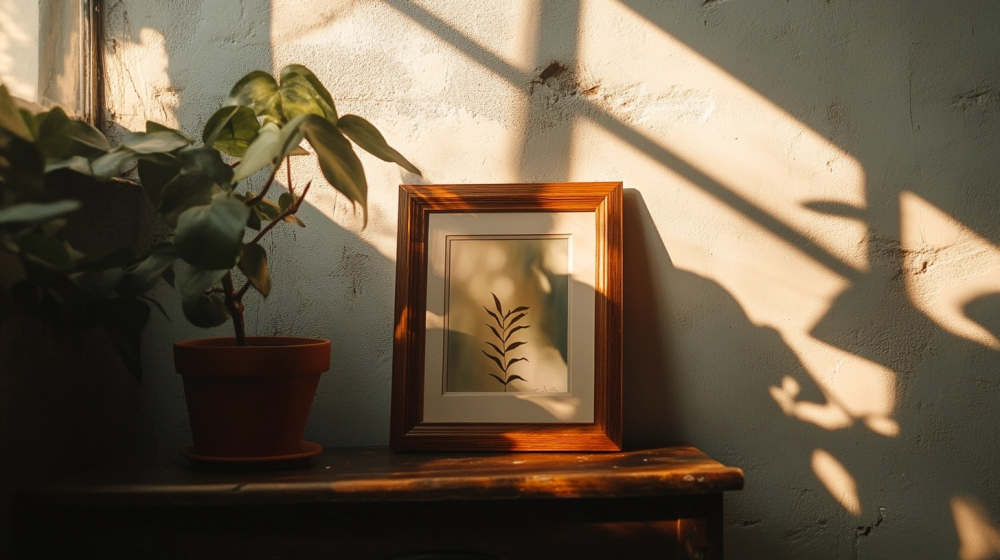
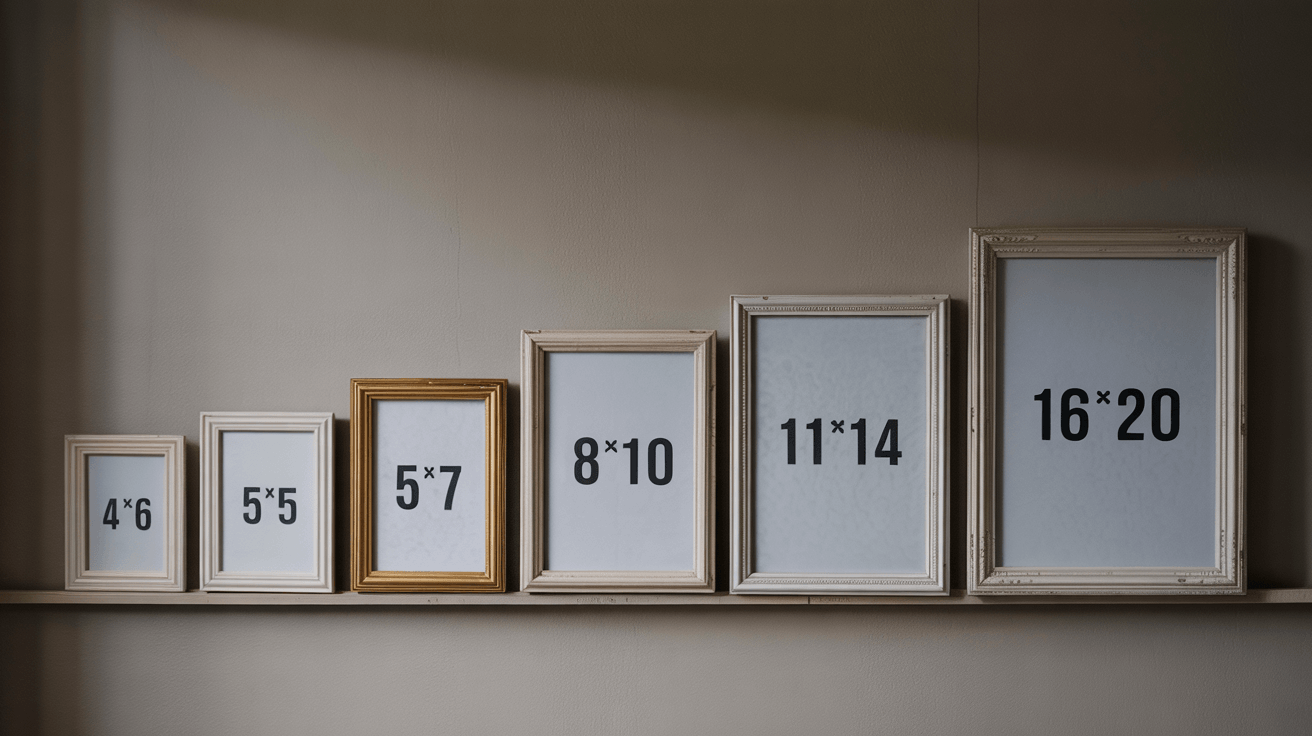
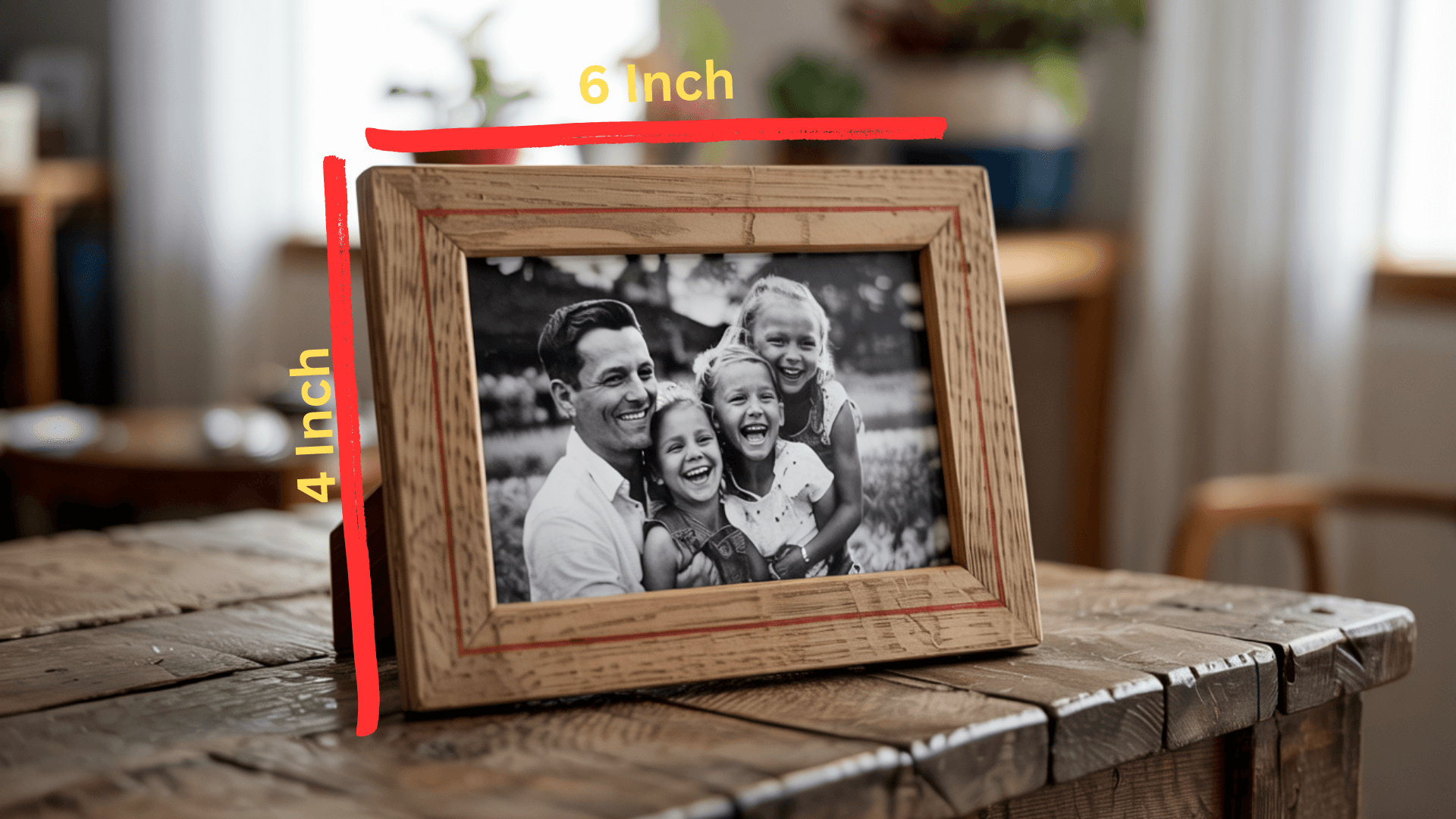
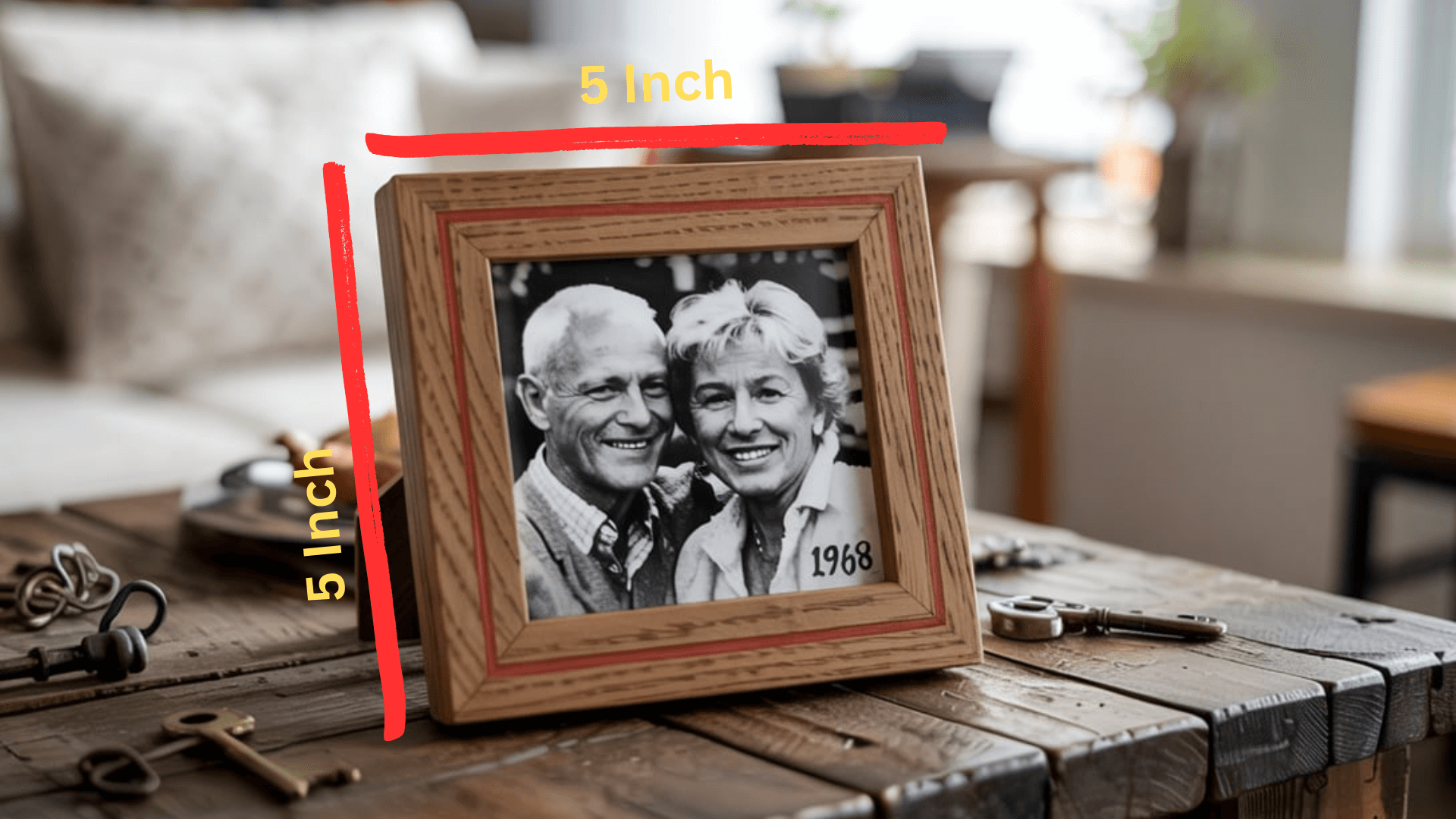
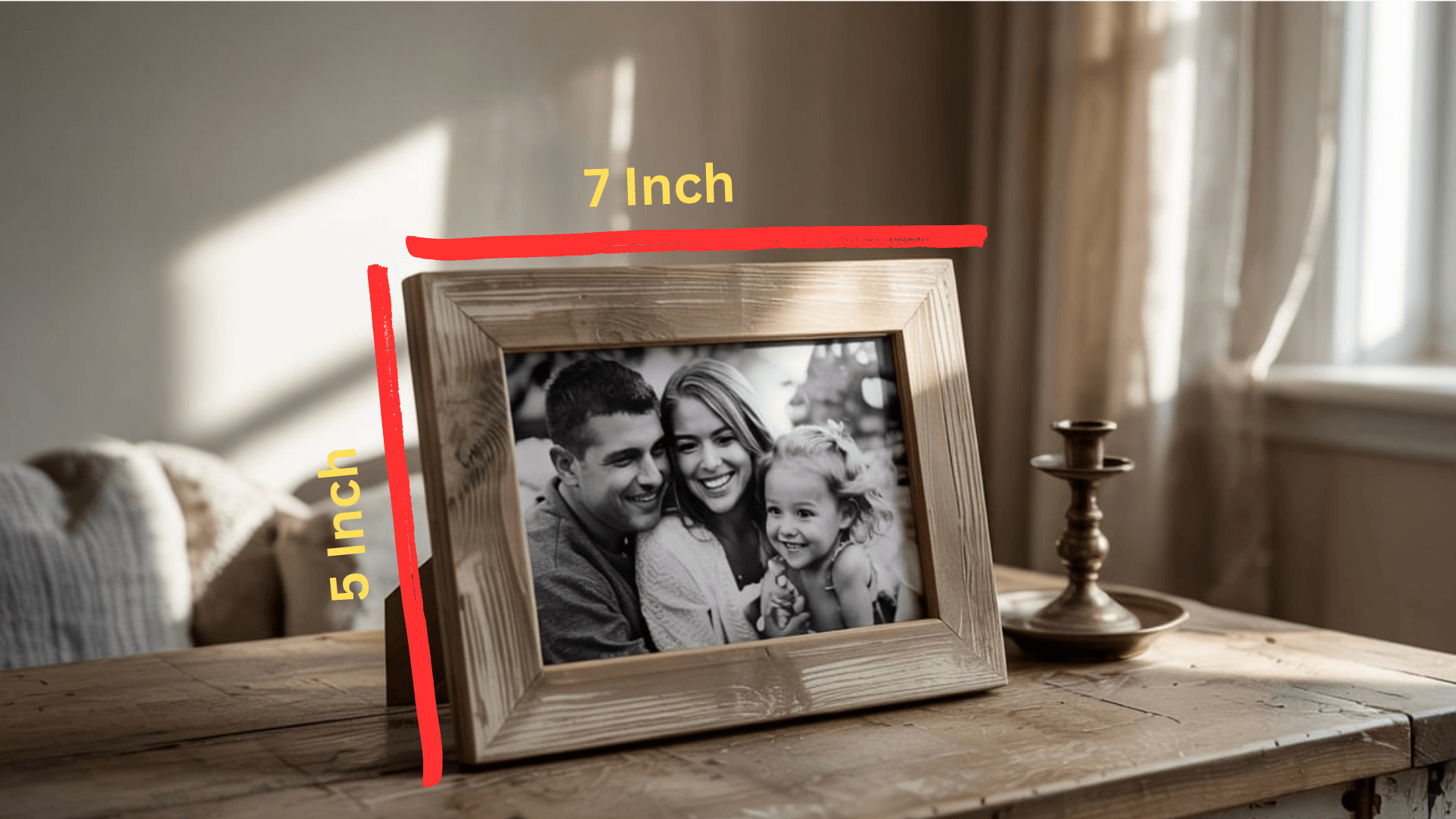
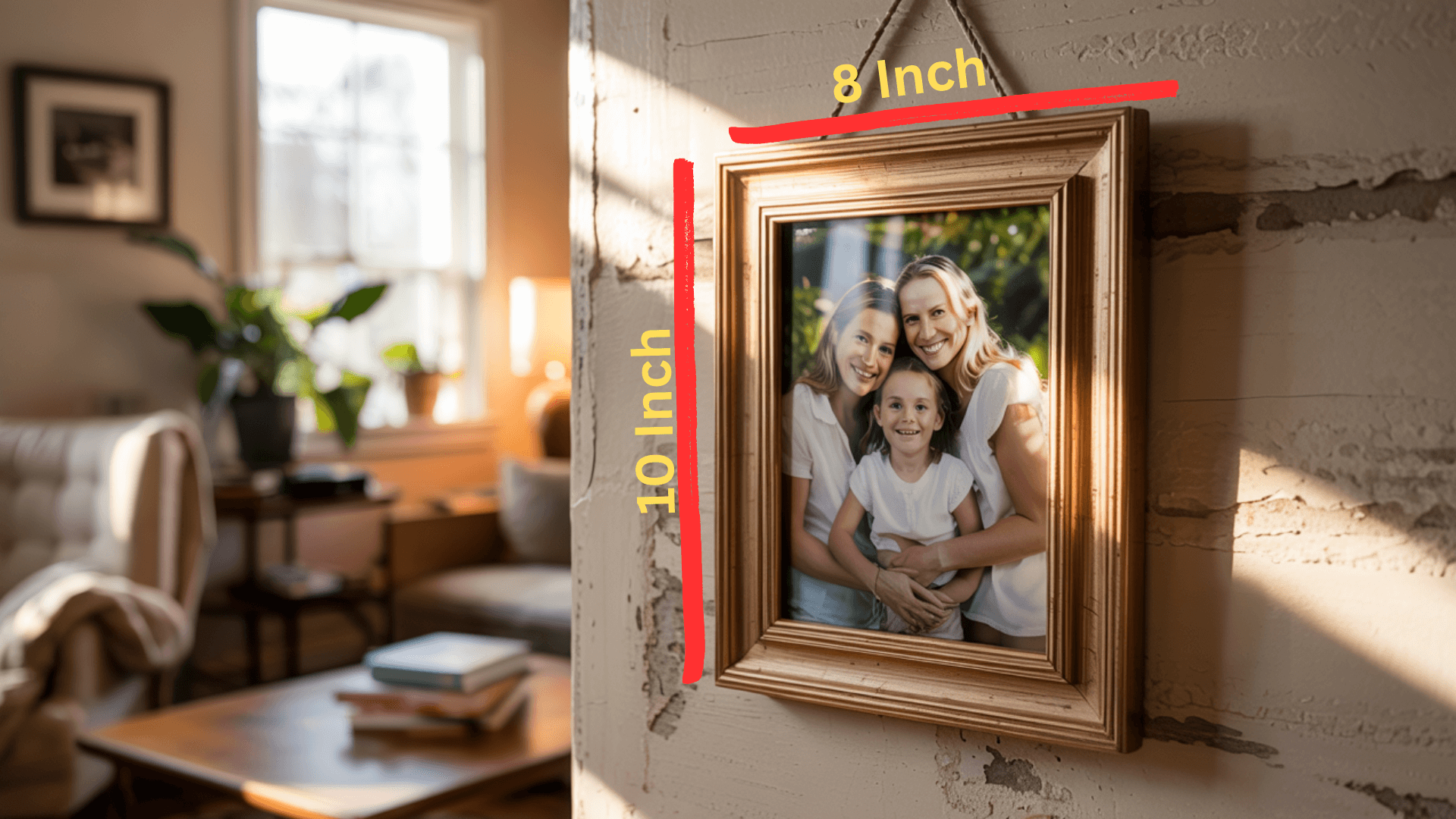
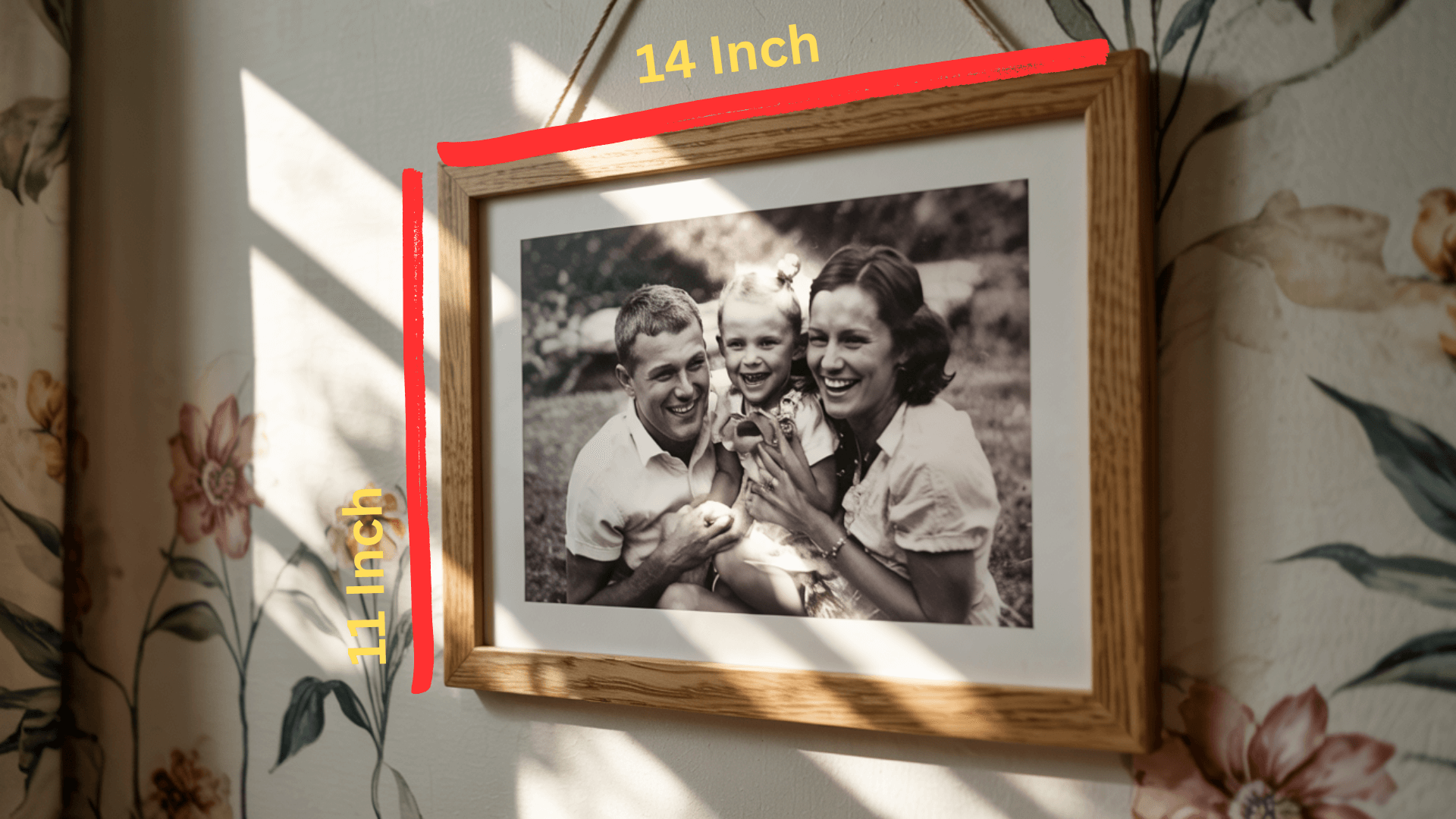
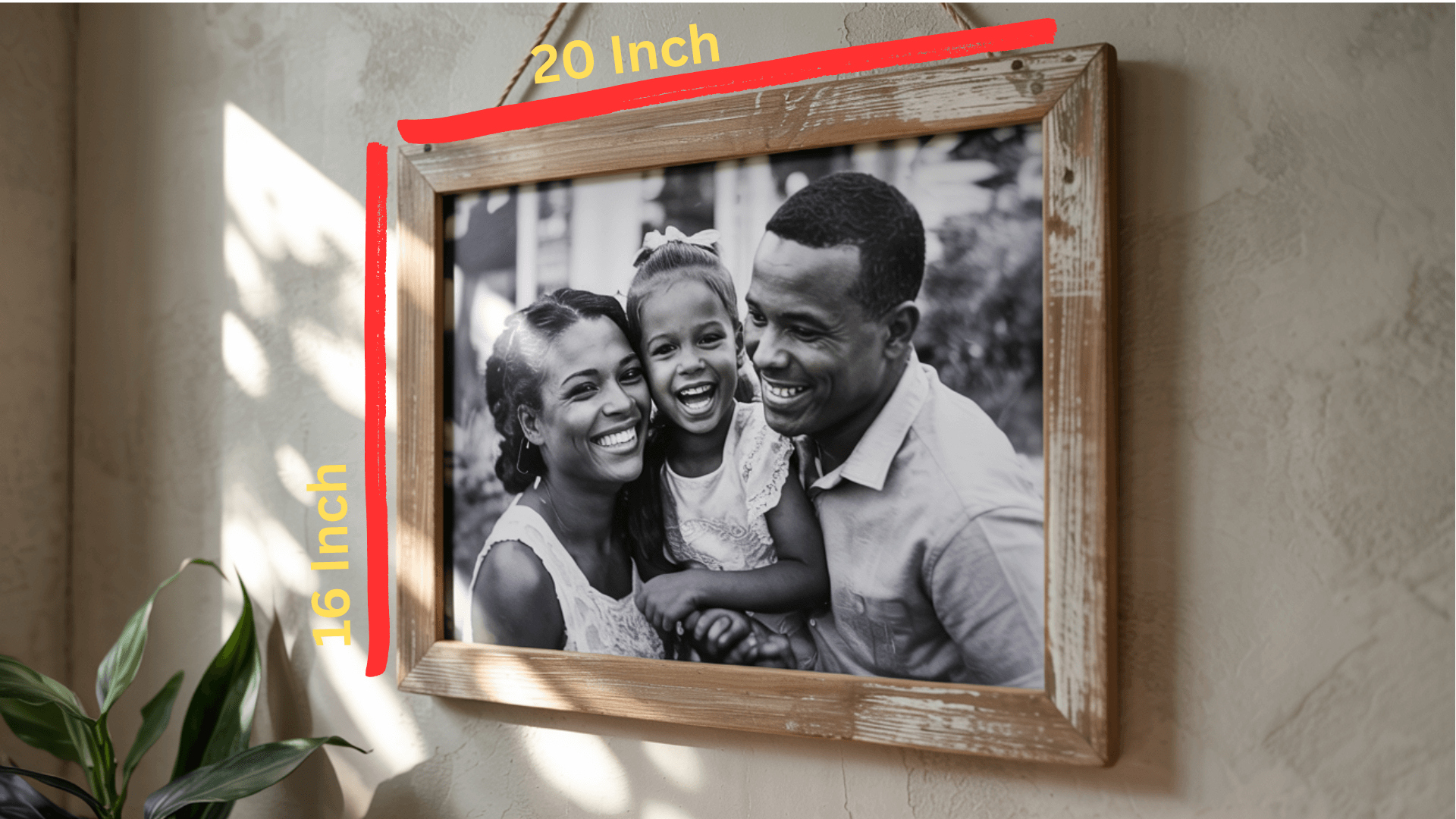

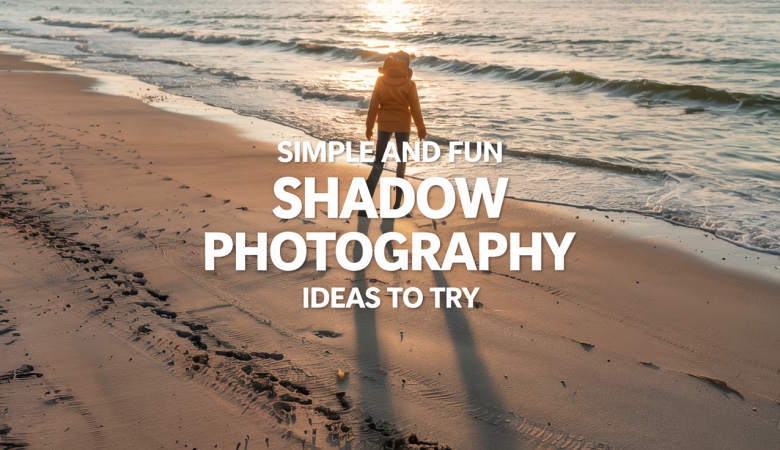
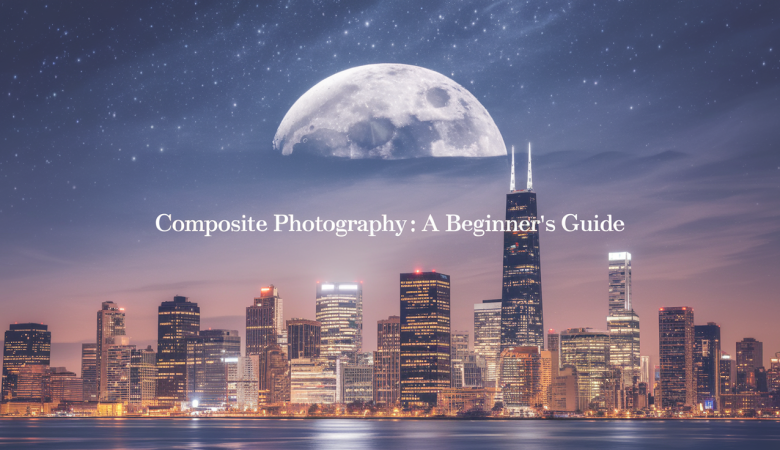

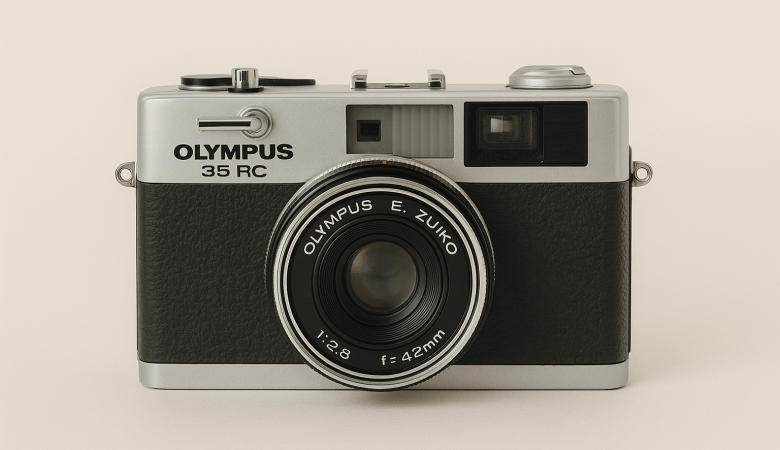
Leave a Reply